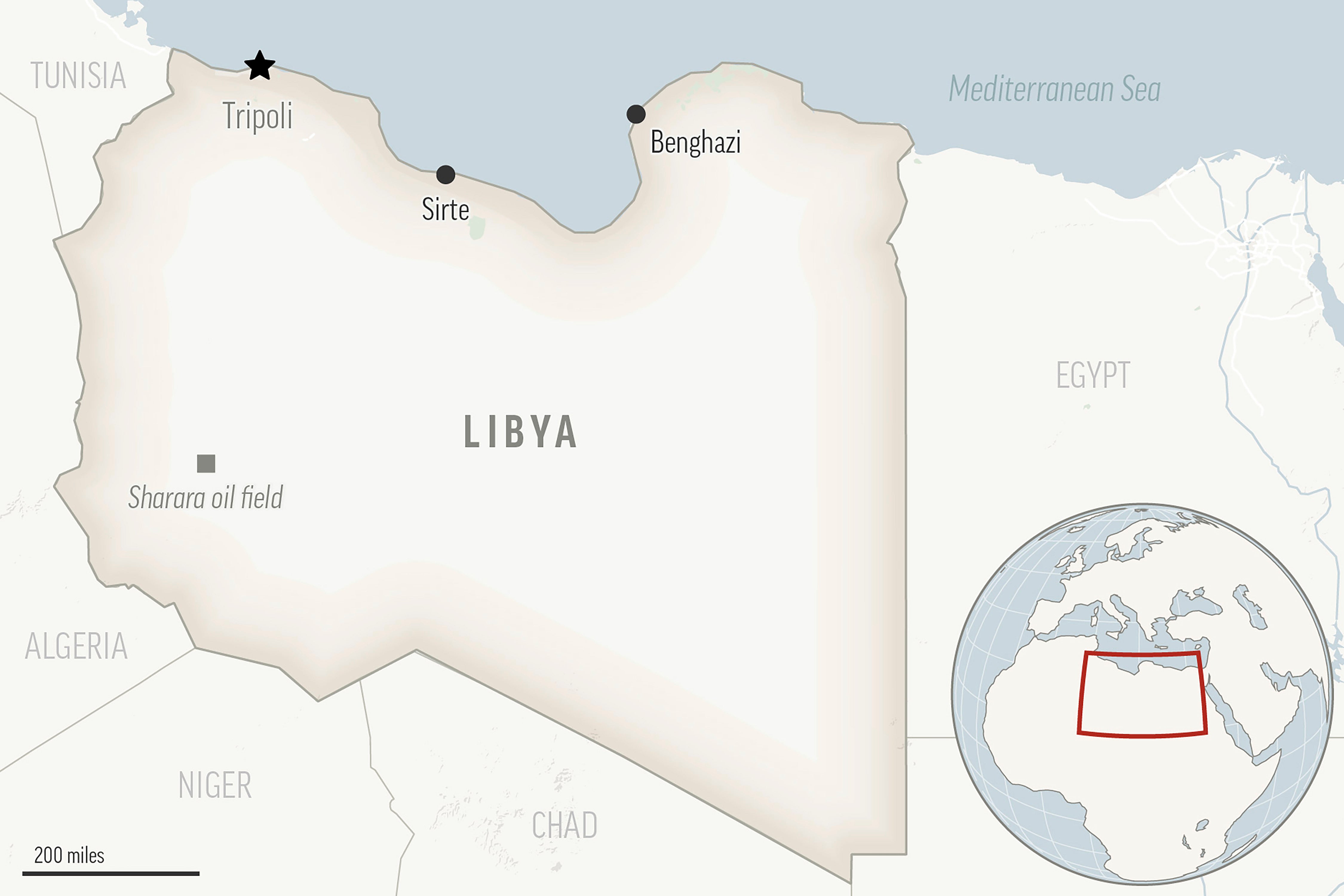Libya’s powerful central bank governor is fired as country's deep divisions persist
One of Libya’s dueling authorities unilaterally fired the powerful central bank governor in an abrupt move that is likely to inflame tensions in the divided North African country

Your support helps us to tell the story
From reproductive rights to climate change to Big Tech, The Independent is on the ground when the story is developing. Whether it's investigating the financials of Elon Musk's pro-Trump PAC or producing our latest documentary, 'The A Word', which shines a light on the American women fighting for reproductive rights, we know how important it is to parse out the facts from the messaging.
At such a critical moment in US history, we need reporters on the ground. Your donation allows us to keep sending journalists to speak to both sides of the story.
The Independent is trusted by Americans across the entire political spectrum. And unlike many other quality news outlets, we choose not to lock Americans out of our reporting and analysis with paywalls. We believe quality journalism should be available to everyone, paid for by those who can afford it.
Your support makes all the difference.One of Libya's dueling authorities unilaterally fired the country's powerful central bank governor in an abrupt move that is likely to inflame tensions in the divided North African country.
The presidential council in the capital of Tripoli, which is allied with the government of Prime Minister Abdul Hamid Dbeibah that controls western Libya, removed Gov. Sadiq al-Kabir, according to a decree issued late Sunday.
In his place, the council appointed Mohamed Abdul Salam al-Shukri, an economist and former deputy governor, as the new governor for the Central Bank of Libya.
Al-Kabir had led the central bank since October 2011 — the year that Libya was plunged into chaos after a NATO-backed uprising toppled longtime dictator Moammar Gadhafi.
During that time, he accumulated significant influence and power but also faced criticism from officials on both side of the country's political divide in allocating Libya's oil money. In recent months, that criticism has turned into calls for his removal.
There was no immediate comment from al-Kabir.
Oil-rich Libya has been split between a U.N.-supported government in the capital, Tripoli, and rival authorities based in the east. Each side has been backed by different armed groups and foreign governments.
The Central Bank is the repository for billions of dollars annually in oil revenue as well as foreign reserves. In 2014, it splintered along the country’s political fault lines. Its internationally recognized headquarters remain in Tripoli, while an eastern branch allied with military commander Khalifa Hifter was set up in Benghazi.
However, Libya's east-based parliament and the Supreme Council of State, an advisory body based in Tripoli, called al-Kabir's removal illegitimate. The two bodies should also have a say in who is appointed to the position — a decision that shouldn't be up to the presidential council alone.
That's according to interim regulations agreed to under U.N.-backed talks meant to oversee the country's reunification.